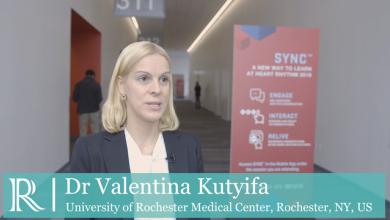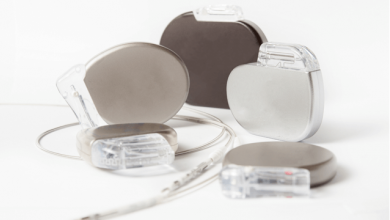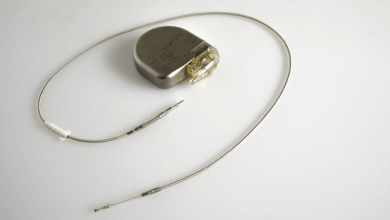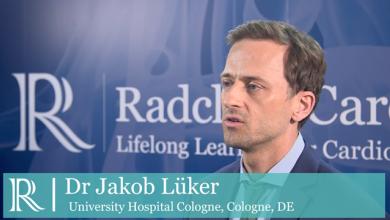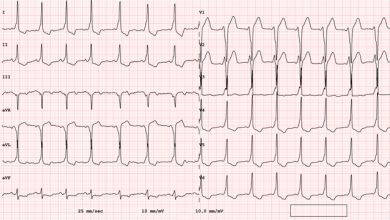Search results
Author(s):
Dietmar Bänsch
Added:
3 years ago
For more than three decades, the implantable cardioverter defibrillator (ICD) has proven to be a well-established, main therapeutic tool for the primary and secondary prevention of sudden cardiac death due to malignant ventricular arrhythmias.1
One of the standard practice concepts is defibrillation (DF) testing. Defibrillation testing has been considered a mandatory part at the time of…
View more
Author(s):
Valentina Kutyifa
Added:
4 years ago
Dr Valentina Kutyifa (University of Rochester Medical Center, Rochester, NY, US / Semmelweis University, Heart Center, Budapest, HU) discusses the MADIT trial and the decline in ventricular arrhythmia events and mortality in the multicenter automatic defibrillator implantation trials.
1. What was the rationale for the study?
2. How was the data collected and analysed?
3. What are your findings…
View more
Author(s):
Hussam Ali
,
Pierpaolo Lupo
,
Riccardo Cappato
Added:
3 years ago
Numerous large clinical trials have demonstrated the benefit of implantable cardioverter-defibrillators (ICDs) to prevent sudden cardiac death (SCD) in selected populations.1,2 These results and advances in defibrillation therapies have led to an impressive expansion of ICD implants and indications in recent decades. Although initially focusing on secondary prevention, current ICD indications…
View more
Author(s):
Jaber Abboud
,
Joachim R Ehrlich
Added:
3 years ago
Implantable cardioverter defibrillators (ICDs) have been used for over 30 years to prevent sudden cardiac death (SCD). The first indications for ICD placement were secondary prevention; later trials demonstrated a primary prevention benefit of ICD therapy in patients at risk of SCD. ICD therapy prolongs life in both patient populations.1 However, the efficacy of an ICD depends on its ability to…
View more
Author(s):
Anthony C Li
,
Amit Kaura
,
Nicholas Sunderland
,
et al
Added:
3 years ago
Since the 1990s, the publication of several large randomised controlled trials (RCTs) have established the efficacy of implantable cardioverter defibrillator (ICD) therapy in reducing the risk of sudden cardiac death (SCD) in high-risk patients. Collectively these trials have demonstrated a significant all-cause mortality reduction compared with medical therapy alone, for both the primary and…
View more
Author(s):
Mark Elliott
,
Sheikh Momin
,
Barnaby Fiddes
,
et al
Added:
3 years ago
Deep brain stimulation (DBS) is an expanding neurosurgical treatment for refractory neurological conditions such as Parkinson’s disease and essential tremor, with over 120,000 devices implanted worldwide.1 The rate of cardiac implantable electronic device (CIED) implantation is rising annually, with 739 pacemaker implants per million and 141 ICD implants per million in western Europe in 2015.2…
View more
EHRA 2019: Internal vs. External Electrical Cardioversion of Atrail Arrhythmias in Patients With an…
Author(s):
Jakob Luker
Added:
5 years ago
Video
Author(s):
Angelo Auricchio
Added:
3 years ago
Despite the fact that more than 20 years have passed since the clinical introduction of cardiac resynchronisation therapy (CRT), one of the key questions – do we need an ICD for primary prevention of sudden cardiac death (SCD) in CRT patients? – is still unanswered.
Prospective Randomised Controlled Trials
Multiple prospective randomised controlled trials have been conducted to establish the…
View more
Author(s):
Rahul K Mukherjee
,
Manav Sohal
,
Nesan Shanmugam
,
et al
Added:
2 years ago
Author(s):
Steven Back
,
Peter R Kowey
Added:
3 years ago
Ventricular arrhythmias are a therapeutic challenge. They occur frequently in clinical practice, are found in patients with and without structural heart disease, and most importantly, are unpredictable and potentially deadly. Patients with a history of sustained ventricular tachycardia (VT) and VF or those at high risk for such arrhythmias, may require an ICD to prevent sudden cardiac arrest…
View more









